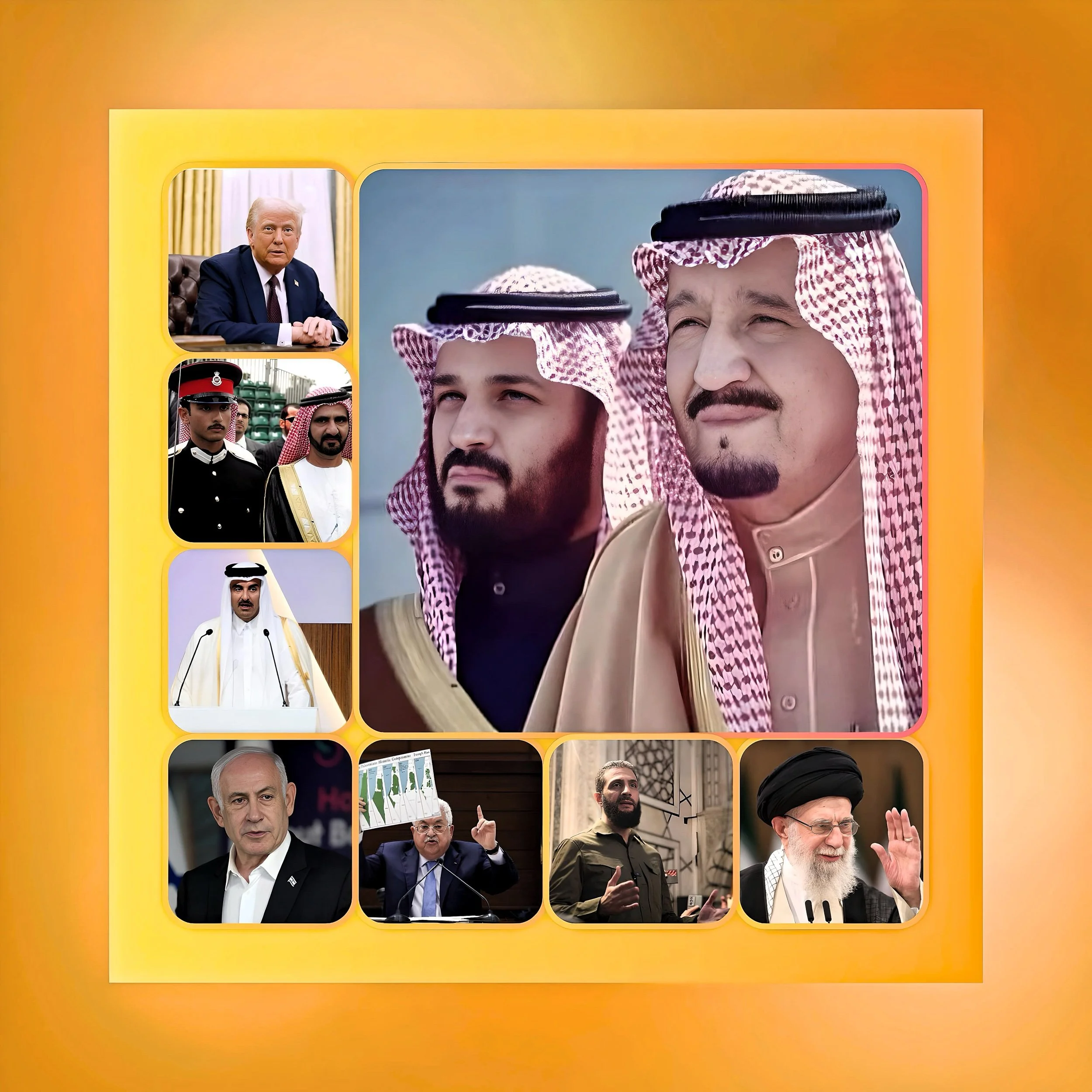The Trump Effect: How His Return Could Reshape the Middle East.
Introduction
As Donald Trump prepares to assume office in January 2025, the Middle East stands at a crossroads. Trump’s first presidency was marked by a strengthening of U.S.-Saudi relations and groundbreaking diplomatic shifts like the Abraham Accords. Now, with his return, questions abound about how these foundations will evolve in a region grappling with shifting alliances, economic ambitions, and enduring conflicts.
For global observers, this moment isn’t just about policy—it’s about understanding the stakes for millions of people who live in the region and the leaders tasked with shaping its future.
A Look Back: Trump’s First Term and Saudi Cooperation
During Trump’s previous term, the U.S. and Saudi Arabia forged a partnership rooted in shared strategic goals. Crown Prince Mohammed bin Salman (MBS) found a willing partner in Trump, who supported Saudi priorities like countering Iran’s influence, securing significant arms deals, and fostering economic ties.
One of the most notable outcomes was the Abraham Accords, which normalized relations between Israel and several Arab states, including the UAE and Bahrain. While Saudi Arabia didn’t formally join, it expressed quiet support for the movement, setting the stage for future normalization.
Trump 2.0: Implications for the Middle East
As Trump begins his second term, the region faces a mix of continuity and uncertainty:
Renewed Pressure on Iran
Trump’s hardline stance on Iran is expected to return, potentially reviving the “maximum pressure” campaign. While this aligns with Saudi Arabia’s security concerns, it risks escalating tensions in the Gulf.
Accelerated Saudi-Israel Normalization
Trump is likely to prioritize formalizing Saudi-Israel ties, viewing this as a capstone for his Middle East strategy. While MBS has shown interest in normalization, he must navigate domestic public opinion and his role as a guardian of Islam’s holiest sites.
Economic Collaboration
With Saudi Arabia’s Vision 2030 in full swing, Trump’s presidency could offer renewed U.S. investments and partnerships, aligning economic modernization with strategic cooperation.
Acknowledging Humanitarian Concerns
As Trump takes office during a time of ongoing conflict in the Middle East, humanitarian concerns have become increasingly central.
The Biden administration’s challenges in securing humanitarian aid during the war underscore the delicate balance between military strategy and moral responsibility. Israel has reiterated its commitment to its moral principles, emphasizing that its defense policies do not target the innocent.
In Israel's view, the October 7 attacks were a tragedy that demanded a response—not provocation—and the nation strives to remain just even in the face of conflict.
The Human Element: Beyond Policies
Behind these geopolitical maneuvers are the lives of everyday people:
For Israelis, normalization with Saudi Arabia represents hope for enhanced security and regional integration.
For Saudis, the prospect of closer ties with Israel raises questions about cultural identity and national priorities.
For Palestinians, there’s a concern that their aspirations for statehood might be sidelined amid larger diplomatic moves.
Empathy demands that we consider these perspectives, recognizing the hopes and fears of those most affected by policy shifts.
A Short Personal Reflection
While the shifting dynamics in the Middle East bring new challenges and opportunities, it is crucial to remember that the decisions made by leaders in Riyadh, Washington, and Jerusalem affect real lives. People on all sides—Israelis, Saudis, Palestinians, and others—have deeply held hopes for peace, security, and prosperity.
As we consider these geopolitical shifts, let us prioritize empathy, understanding, and the shared desire for a peaceful future, where the voices of all those affected are heard and respected.
The Role of Leadership: Trump, Netanyahu, and MBS’s Dynamics
Prime Minister Benjamin Netanyahu plays a crucial role in how Israel engages with the evolving dynamics in the Middle East.
Under Netanyahu, Israel has increasingly pursued strategic alliances with Arab states, largely as a counterbalance to the Iranian threat. Netanyahu has long advocated for deepening Israel’s ties with Gulf countries, including Saudi Arabia, viewing them as potential partners in security and regional stability.
Netanyahu has also positioned Israel as a critical ally of the U.S. under both Trump and the Biden administration. His government's support for the Abraham Accords aligns with a broader vision of fostering regional peace and cooperation. With Trump’s return to power, Netanyahu will likely seek to leverage these relations further, potentially pushing for more open ties between Israel and Saudi Arabia.
However, Netanyahu also faces internal and external challenges. The Palestinian issue remains a contentious topic, and any major moves toward Saudi normalization will need to be handled delicately, particularly given the domestic political climate in Israel and the broader Arab world’s stance on the Palestinian cause.
Trump’s Firm Stance on Hostages
Trump’s uncompromising rhetoric about securing the release of hostages aligns with his broader emphasis on assertive leadership in the region.
Before his second term begins, Trump has declared that all hostages must be released or “hell will break through.” This statement underscores Trump’s focus on human life, emphasizing that he views the safety of hostages as a priority, regardless of their nationality.
The Security Implications: Gaza, Hezbollah, and Syria
From an Israeli perspective, MBS’s shifting position will directly affect the security situation in Gaza, Lebanon, and Syria. Hezbollah, an Iranian-backed militia, remains a potent threat to Israel, with growing missile arsenals and the ability to engage in cross-border conflict.
The recent surge in violence in Gaza, including Hamas’s October 2023 surprise attack, has heightened the risks of broader regional instability. With Hezbollah’s increasing activity on Israel’s northern border and Iran’s continued influence over both Hezbollah and Hamas, Saudi Arabia’s evolving stance on Israel will be a key factor in determining the stability of the region.
In Syria, where Iranian forces maintain a significant presence, Saudi Israeli cooperation could act as a counterbalance to Iranian ambitions. However, MBS must carefully consider the impact of such cooperation on his domestic audience and the broader Arab world, where support for the Palestinian cause remains strong.
Conclusion: Building Bridges in a Changing Region
As the world watches this new chapter unfold, it’s essential to move beyond power dynamics and focus on shared humanity. The choices made by leaders in Riyadh, Washington, and Jerusalem will resonate far beyond borders, shaping the lives of millions.
“In a time of transformation, let us prioritize understanding over division, collaboration over conflict, and hope over fear—for the sake of all who call this region home.”






